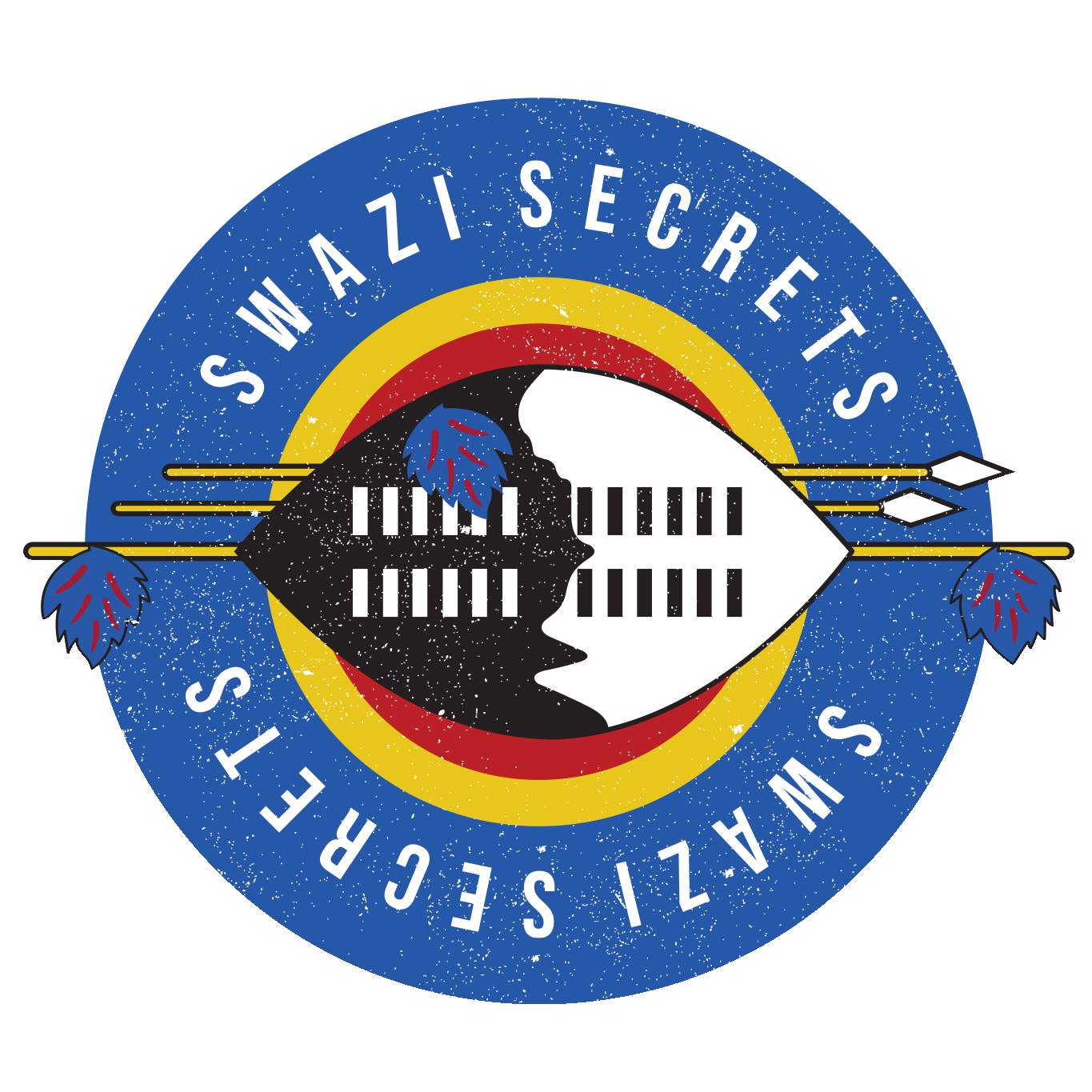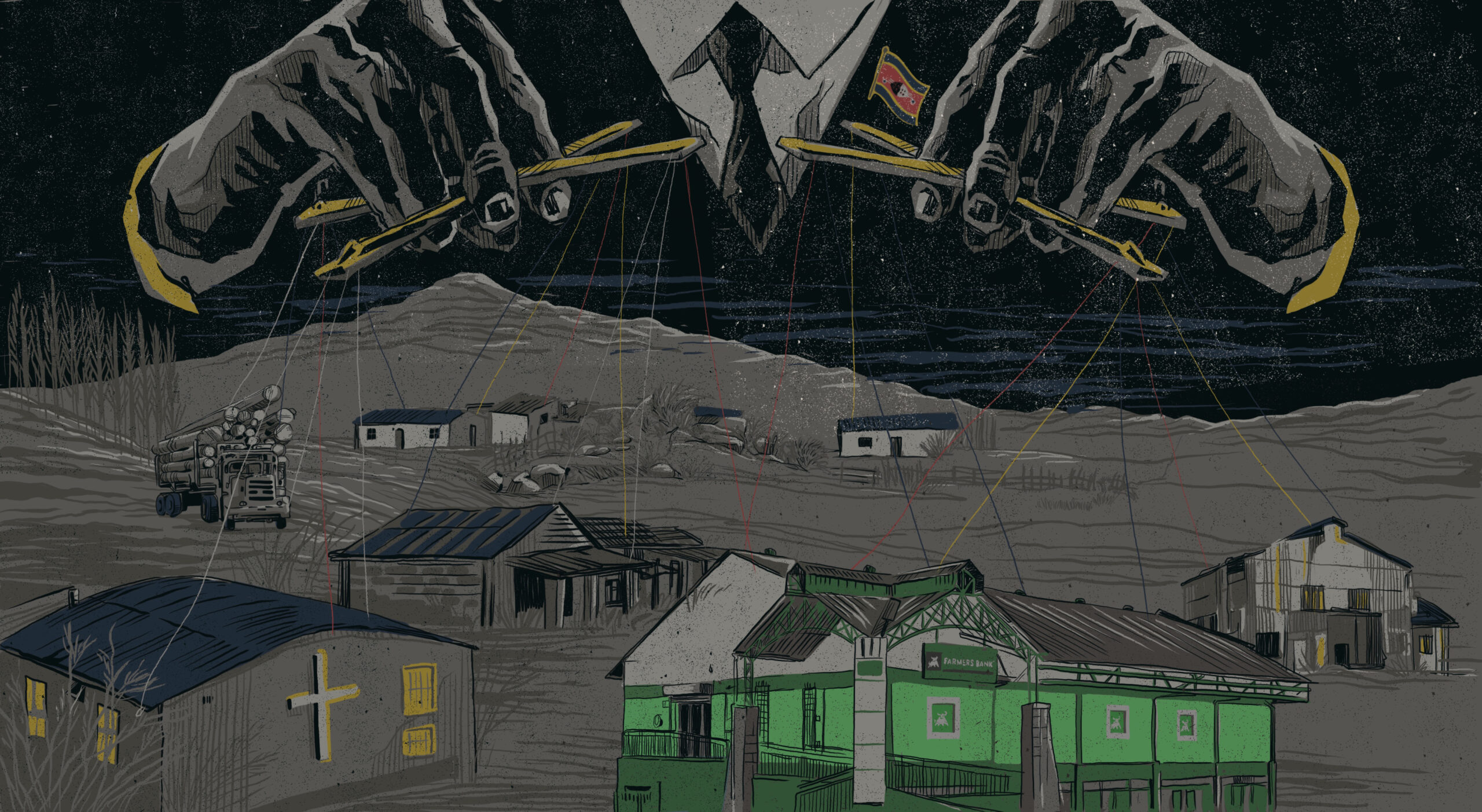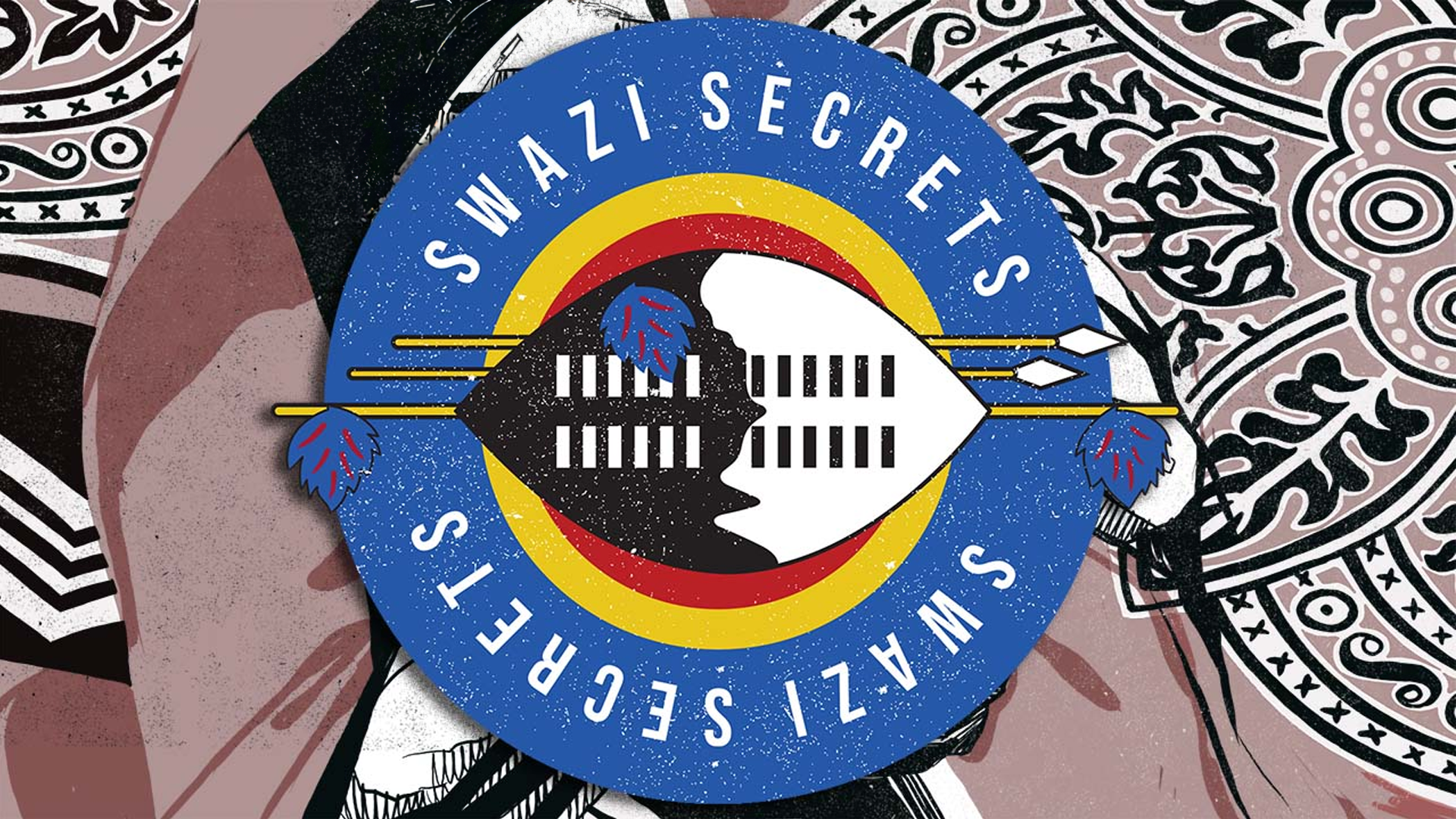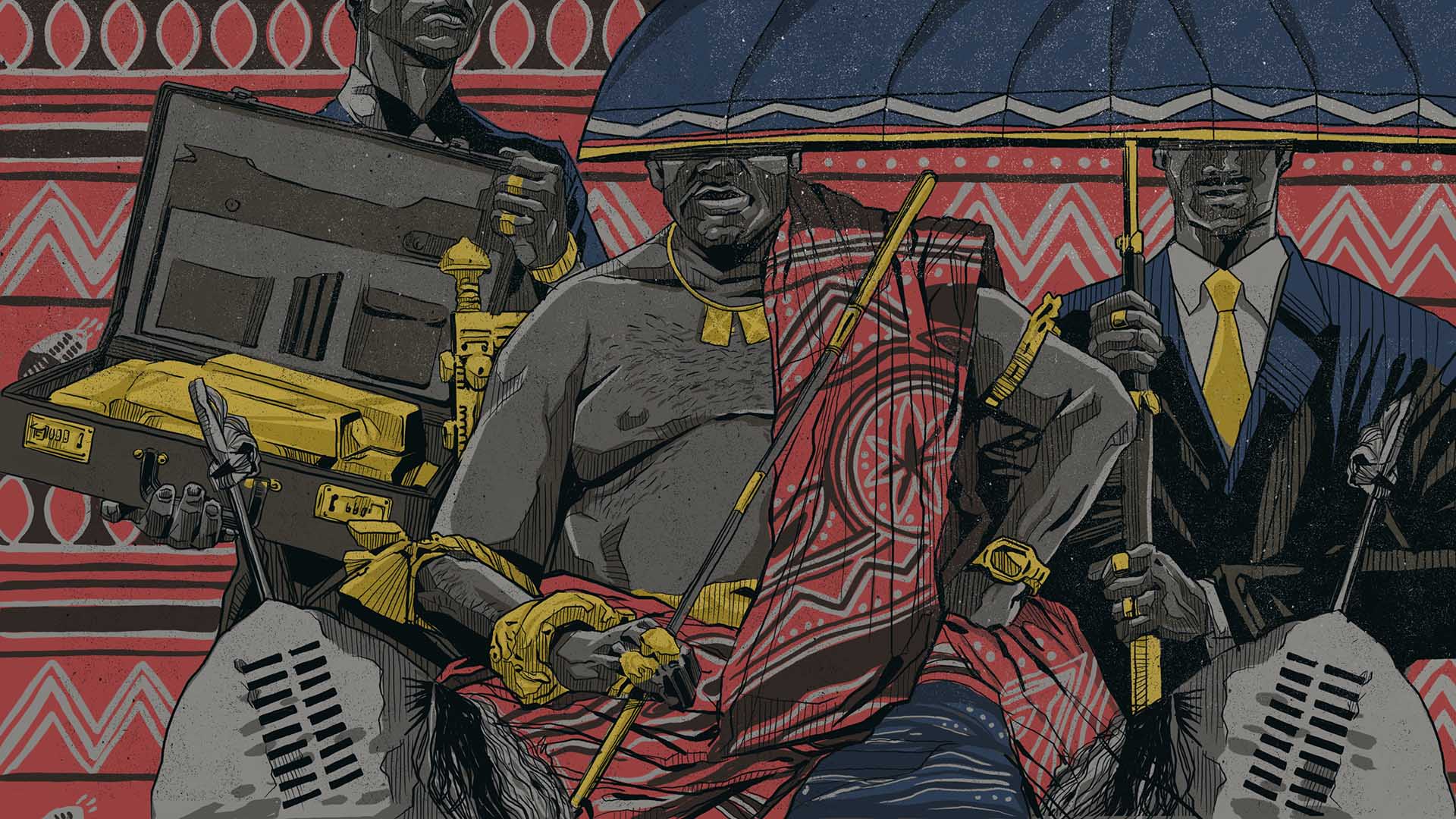FAQ
Frequently asked questions about the Swazi Secrets investigation
Where is Eswatini? Where did the Swazi Secrets leak come from? Who are the journalists behind the investigation? These questions and more, answered.
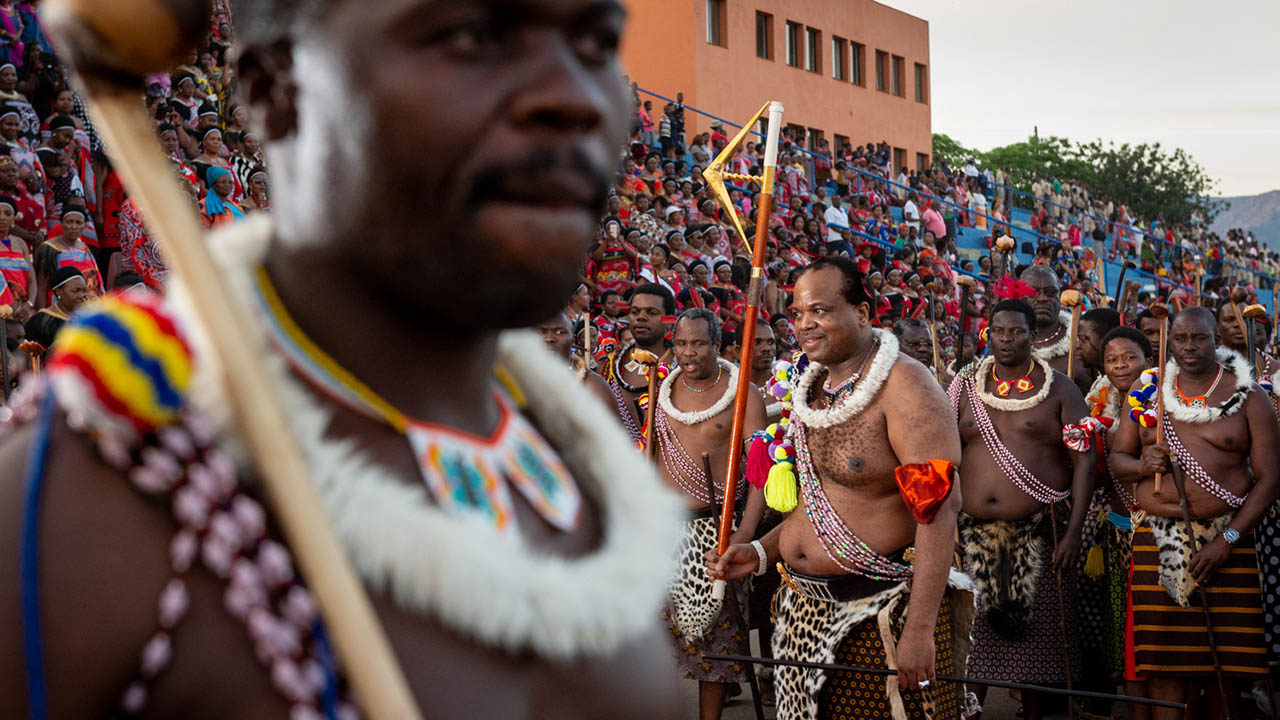
What is the Swazi Secrets investigation?
Swazi Secrets is a cross-border investigation based on leaked files from the Eswatini Financial Intelligence Unit. The investigation reveals Eswatini’s unexplored role as a possible conduit in southern Africa’s gold smuggling economy — and how the absolute monarchy’s weak anti-money laundering controls enable figures close to the royal family to benefit from proximity to the king.
Where is Eswatini?
Previously known as Swaziland, Eswatini is a landlocked African country between South Africa and Mozambique. It’s the last absolute monarchy in Africa and the king, Mswati III, rules by decree. In 2018, Mswati III unilaterally changed the country’s name.
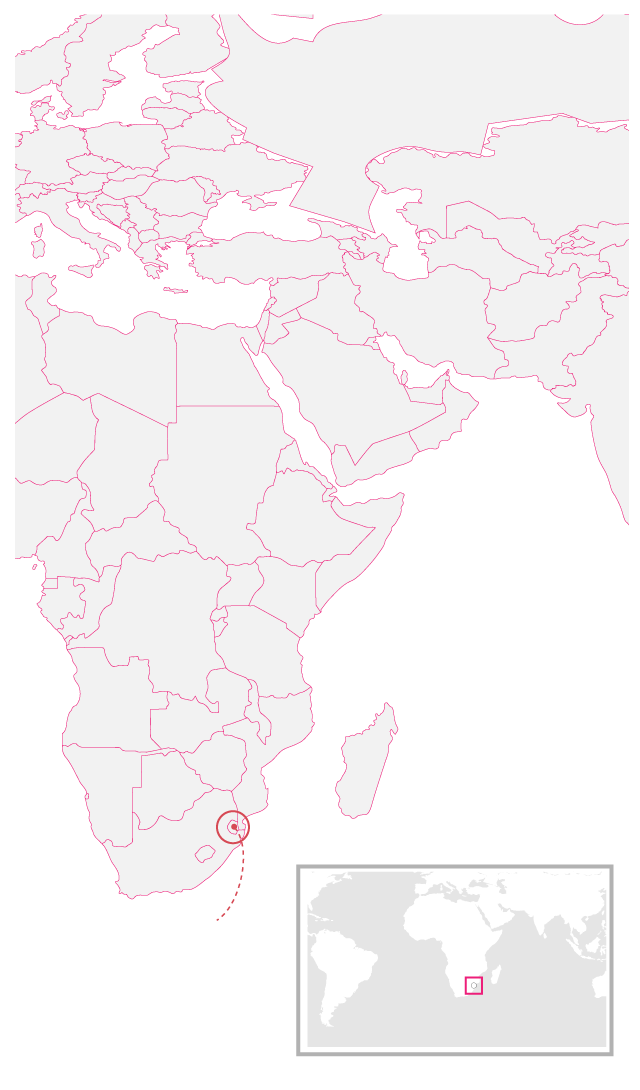
Argelia
Saudi Arabia
India
Tanzania
Angola
Madagascar
South Africa
Eswatini
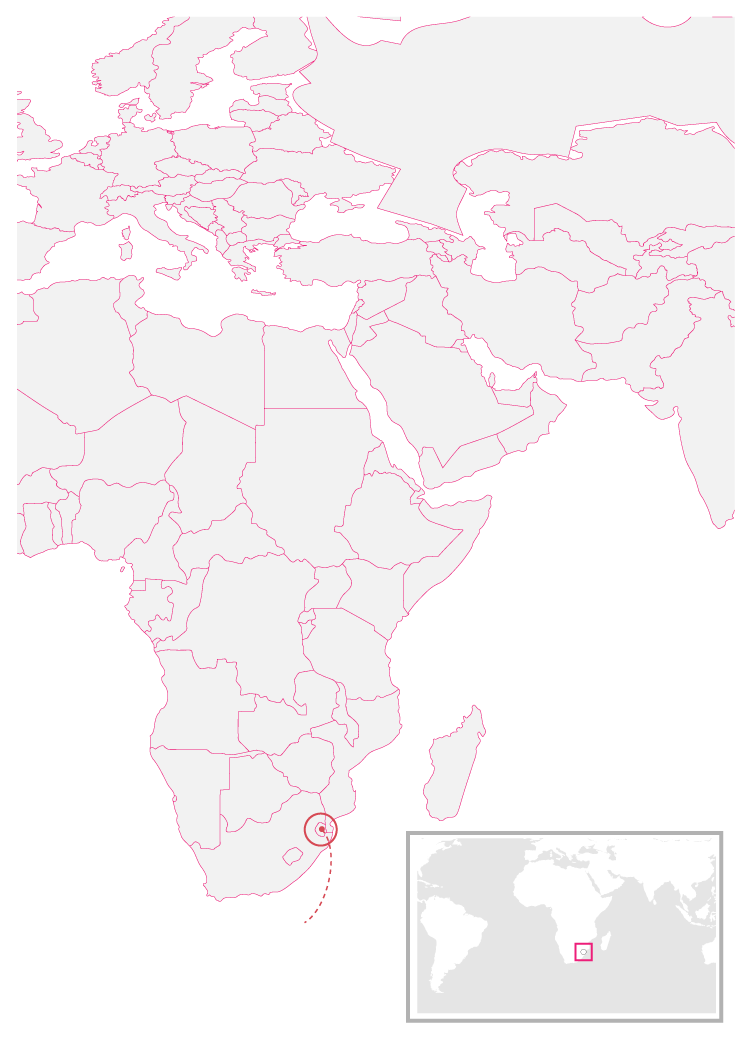
Argelia
Saudi Arabia
India
Tanzania
Angola
Madagascar
South Africa
Eswatini
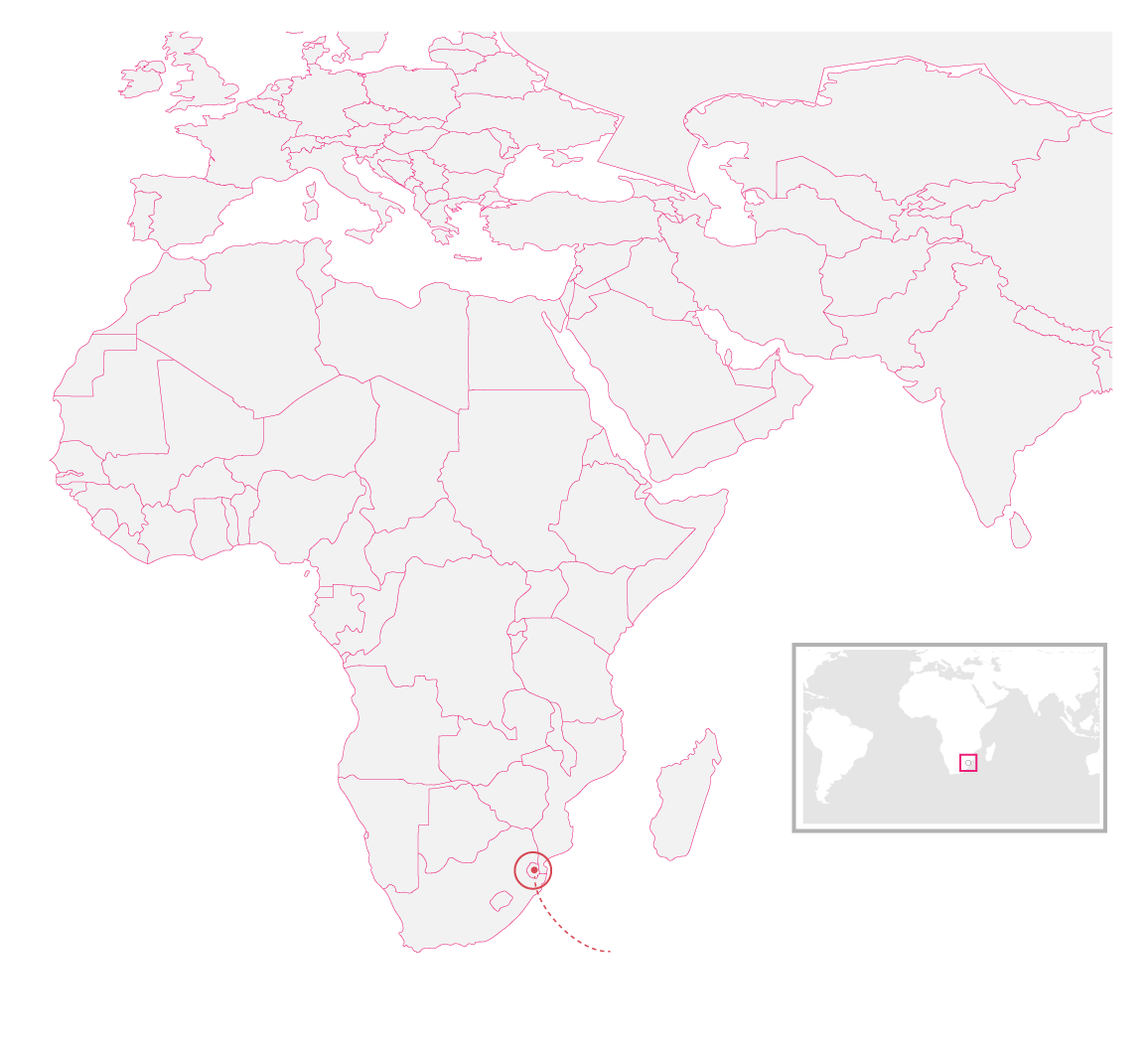
Argelia
Saudi Arabia
India
Tanzania
Angola
Madagascar
Eswatini
South Africa
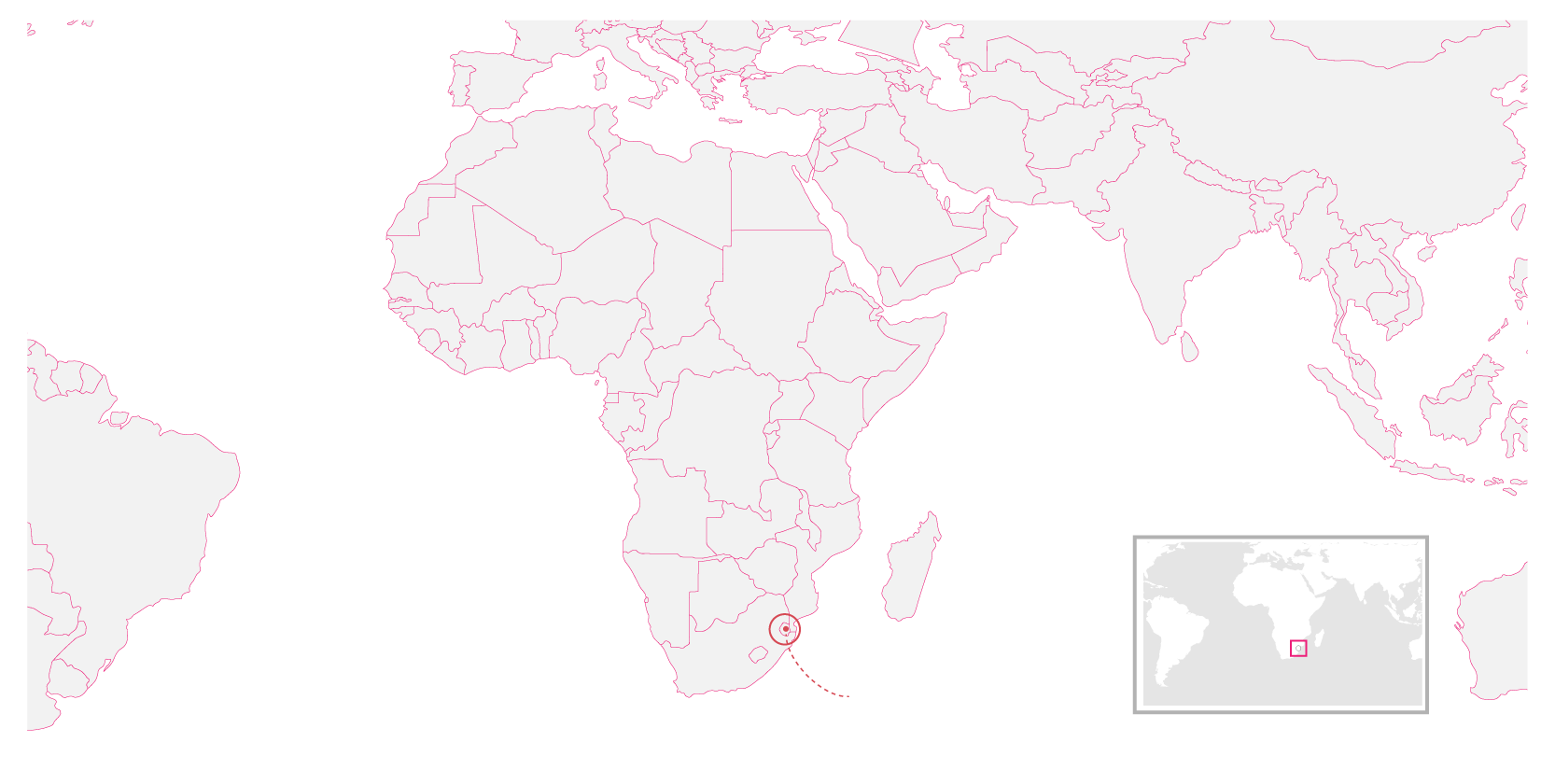
Argelia
Saudi Arabia
India
Tanzania
Brasil
Angola
Madagascar
Eswatini
South Africa
Eswatini is home to 1.2 million people and its economy is heavily dependent on its larger neighbors. Unemployment is high: Nearly 60% of Swazis under 25 are out of work. And, at 53 years as of 2021, life expectancy for men was among the lowest in the world. For women, it was 61 years. Those poor health outcomes are driven by the world’s highest prevalence of HIV among adults: Around 26% of the adult population is living with HIV.
Eswatini: A brief history
Over the past two centuries, the tiny kingdom of Eswatini has shifted and evolved — and even changed its name — but one constant has remained in place: the monarchy.
What are some of the key findings from Swazi Secrets?
Swazi Secrets shows how Mswati III promised a thriving “special economic zone” to repair Eswatini’s tattered economy. The economic zone never materialized and the site is now a ghost town home to a lone government office complex and two phantom gold refineries channeling millions of dollars to Dubai.
The unprecedented leak includes records relating to several prominent people in the king’s orbit, including members of the Swazi royal family and government officials. The investigation highlights the extraordinary role of the king and some key allies in supporting a new bank in a years-long tussle with the regulator, the Central Bank of Eswatini.
Where did the Swazi Secrets leaked data come from?
Swazi Secrets is based on more than 890,000 internal records from the EFIU obtained by Distributed Denial of Secrets, a nonprofit devoted to publishing and archiving leaks, which shared them with the International Consortium of Investigative Journalists. It is the largest leak of its kind from a financial intelligence unit in an African country.
What kinds of files does the leak include?
The leaked files include bank records, suspicious transactions analyses, police investigation reports, court affidavits, and confidential exchanges between government agencies within southern Africa. The EFIU records also include details about banks in African countries and beyond that have facilitated financial transactions for people and companies suspected of criminal activity.
Will ICIJ publish the leaked data in full?
ICIJ won’t release personal data or the full cache of leaked files but may publish relevant documents, abridged or in full, alongside our stories. ICIJ and its media partners will continue to explore the data.
To follow ICIJ’s latest reporting, subscribe to our newsletter.
Will ICIJ share the leaked data with governments or law enforcement agencies?
ICIJ does not share reporting material with authorities. We are an independent news organization, serving our members, the global investigative journalism community and the public — we are neither an arm of law enforcement nor an agent of any government.
Which journalists and media outlets were involved in the Swazi Secrets investigation?
ICIJ coordinated a team of 38 journalists across 11 countries to explore the leaked files and investigate illicit financial flows in southern Africa and elsewhere.
A complete list of media partners is available here.
How can I collaborate with ICIJ?
ICIJ welcomes new offers to collaborate with journalists. But, due to limited resources and the high cost of onboarding new partners, we can’t accept all offers and prioritize journalists with a proven record of high-quality investigations. Journalists seeking to partner with ICIJ should email data@icij.org. ICIJ only partners with journalists.
How do I leak to ICIJ or share tips and documents?
ICIJ accepts all information about potential wrongdoing by corporations, governments or public service entities worldwide. We always try to guarantee the confidentiality of our sources. Whistleblowers can securely submit any information that may be of public concern — documents, photos, video clips, story tips and more.
Who funds ICIJ?
ICIJ relies entirely on donations to fund our work — we would not exist without our donors. Please consider donating to ICIJ.
Find out more about ICIJ and see a list of our major institutional donors in our 2023 annual report.
